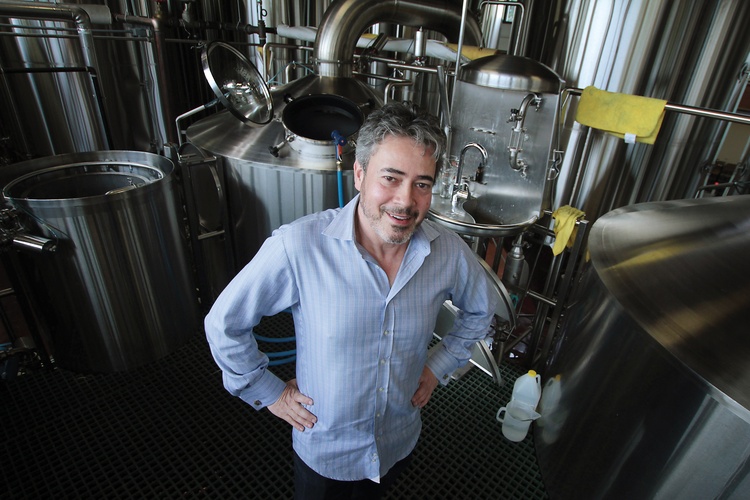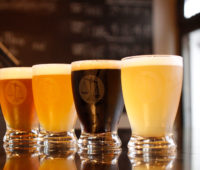
Anyone who enjoys a cold beer at a football game, in a pub or relaxing at home with friends may benefit from the fantasy of judging worldwide entries at the U.S. Open Beer Championship. Many aficionados who have a favorite and stick with it may not realize that beers come in more than 100 styles, and all of them were at the 2017 competition in Ontario.
Judging the Judges
More than 6,000 beers competed for prizes and recognition by a panel of international beer who are members of the Board of Directors of the 2017 U.S. Open Beer Championship. With many years of distinguished achievements in the brewing industry, judges from Canada, England, and the United States brought their expertise and dedication to the task of judging. Their accomplishments included designation as a Master Brewer or a career as president of a brewery, editor of an industry publication or experience as a college professor providing instruction in the art of brewing.
Understanding the International Scope
As the host country, Canada participated in the competition along with others who were as close as the United States or as far away as Venezuela, Vietnam, Belgium or Australia. The Open competition invites award-winning home-brewers as well as professional breweries to seek gold, silver or bronze medals. Major categories include ales and lagers, hybrids, barrel aged, special and non-alcoholic. Brewing craft beer started attracting the attention of Eli Gershkovitch in the earliest moments of his career.
Choosing to Create Something of Tangible
With a degree in law, most people probably look forward to a long and satisfying career as an attorney. Eli Gershkovitch is hardly the same as most others, and he prefers to create something of value. His analogy for his preferred style makes him the “machine instead of the grease” that helps it work. “I wanted to be value-added,” he said.
His passion for craft beer got its start in 1987 with a European tour after graduation from the University of Toronto’s law school. His first taste of Belgian beer ignited a driving desire to create a “tank to tap” libation and satisfy his passion for making something great.

Starting as a Practicing Attorney
From his Vancouver law office, Eli Gershkovitch researched the craft brewery business and found a perfect location for a brewpub in Gastown, a historic section of the city. His work on liquor licenses for his clients gave him familiarity with the licensing rules and the best way to make them work for him. The spot he chose was a landmark, 100-year-old building that included an unusual feature, a steam heat system. Entrepreneur Gershkovitch decided to use it as a source of energy for his steam-powered brewing as well as the name of his business.
His legal skills helped resolve a problem with a liquor license moratorium in Gastown, but it required 14 months as well as a referendum. The location of his establishment was the underlying cause that prevented the approval of his liquor license. The board that reviewed and granted or denied the applications for the right to serve alcoholic beverages did not accept Gastown’s status as a residential neighborhood, but the people rallied behind Gershkovitch to make Steamworks happen.
By 1995, he was experiencing the rewards of his efforts with the opening of his Steamworks Brew Pub. Producing 15 to 17 beers annually as a highly successful brewery, Steamworks introduced only six craft beers in its first year. The current availability of his pilsner and pale ale in 85 government liquor stores in addition to many private retailers confirms his belief in expanding to keep pace. ‘You grow to meet demand or demand shrinks to meet you,’” he said.
Blazing a path that others may have considered naïve did not deter Eli Gershkovitch who is a determined man (Calgary Herald). He insisted on a location that was unique and unlike other beer halls, one that offered his patrons an environment that let them drink the beer that he brewed on-site.
Reaching New Levels of Success
An entrepreneur’s spirit and a belief in the importance of growing a business gave Eli Gershkovitch the motivation and vision to make improvements to his business at a steady pace. He expanded the floor space of his original location in Gastown by increasing the number of seats from 184 to 754. A next-door building became the home for his Rogue Kitchen and Wetbar. Along the way, he cemented his expansion efforts by sponsoring Gastown events and a willingness to help transform the area into a hip place to hang out.
The culmination of years of planning, organizing and executing let Eli Gershkovitch realize a dream in 2013 with the opening of his full-scale brewery. With the capacity to increase production by 20 times at full capacity, his sales territory reaches many countries who have a reputation for their beer. Notably, his clients include discerning beer lovers in Austria, Germany, Hong Kong, Italy, and Switzerland. His products sell in 14 states in the U.S. and several Canadian provinces. Of his success, Eli Gershkovitch characteristically called it “transformational” as he headed to Austria to visit one of his sales teams. He clarifies his remarks by acknowledging that “everybody is talking about craft beer at the moment.” After brewing craft beer for 21 years, he was “part of the first wave, and now I’m part of the second wave.”
Envisioning Success
The desire that Eli Gershkovitch expressed early in his career to create something of value has produced tangible proof. He acknowledges that the search for fulfillment and purpose offers many different paths, but he felt the need to build something. The long road to expansion and acceptance of his brand has produced gratifying results. As he sees his product on store shelves and people choosing to buy them, he realizes the success that his efforts produced. The judges at the Open were impressed with his top-selling craft beers that are long-standing favorites among discerning Canadian beer aficionados. Of his brewery’s remarkable success, Eli Gershkovitch believes that it is different from running a brewpub. You can choose to remain very small, or you have to grow big, he stated.













Leave a Reply
Be the First to Comment!
You must be logged in to post a comment.
You must be logged in to post a comment.